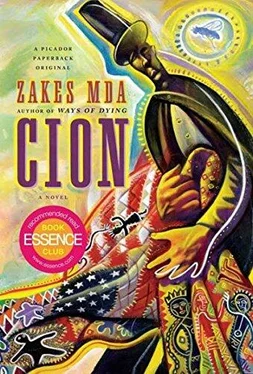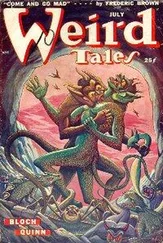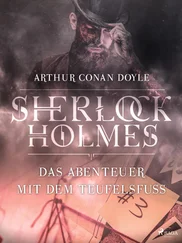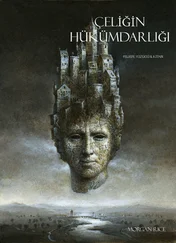He became even more African when he was introduced to a mysterious fellow who lived by himself in his own cabin. It was known by now that he was Mrs. Fairfield’s toy. Even small children knew that. The Owner himself knew that. The plantation gossip had it that The Owner had no choice but to let his wife have a male concubine because he had lost his potency after indulging himself with all and sundry until his penis shriveled into a small worm because of disease. Some believed that the disease had affected his head. Otherwise why would he turn a blind eye when the big black fellow imported from Louisiana some years back serviced the mistress of Fairfield Farms?
Sometimes he was seen walking his tiger on a leash, a gift from the lady of the house purchased from a circus in Richmond after it had become too old to perform tricks. The fellow was quite friendly to the white slave when he first met him on one of his rounds with his tiger. And the white slave thought the fellow was a good man. Until he saw him being rude and arrogant to the black slaves, people the white slave had come to consider his friends. The big man was too good even to return their greeting. It was in reaction to the behavior of this pitch black fellow who felt superior to other blacks just because he slept with a white woman that the white slave resolved to be even more African than ever before.
Although he was now armed with information about the slave stealers who occasionally visited the region to whisk away slaves across the Ohio River, he was too impatient to wait. In the second year of his slavery he tried to escape again. This time he had learned a few tricks and was gone for a few days. The slave chasers searched in vain. Yet he was not far from Fairfield Farms all that time. He had taken refuge in a church in Winfield. It was his good fortune that the Quaker minister was an abolitionist.
The minister nevertheless respected the law of the land and did not play an active role in assisting fugitives. When he heard the slave’s story he believed it and chose to take the legal route. He took the matter to the Supreme Court of Virginia.
The case became a cause célèbre. Mr. David Fairfield engaged the services of a well-known lawyer from Port Royal, Virginia, Mr. George Fitzhugh.
Although Mr. Fitzhugh normally practiced as a criminal lawyer he was particularly suited for this case because of his interest in slavery. He had written extensively in such papers as the New York Daybook, De Bow’s Review and the Richmond Examiner on the subject. His position was that slavery was a natural and rightful condition of society.
The Owner’s position in this case was that the slave in question, a mulatto male of undetermined age, was his rightful property. He brought witnesses, his own happy mulattos who were present when he purchased the said property from a white man on the banks of the Guyandotte. He produced papers and a receipt with a mark made by the former owner, a Mr. John Tyler. There were guffaws, as the name belonged to the President of the United States, a son of Virginia no less, but also a man who had lost favor with all political parties, including his own Whig Party, for exercising the veto indiscriminately. He had lost even more favor with the Democrats for his public declaration that in principle he was opposed to the perpetuation of slavery. This was much further than the Whigs of the South were prepared to go for they were lukewarm on slavery. As far as his fellow Virginians were concerned Tyler had clearly adopted the radical anti-slavery position of the northern Whigs. He had therefore betrayed their trust.
The similarity in names was a mere coincidence, the lawyer assured the judge. Another coincidence, said the lawyer playing to the gallery, was that the John Tyler from whom the slave was purchased was also a Whig. There was further mirth among the counselors and the officials of the august court, who were obviously Democrats. Derisive hisses of “His Accidency” were heard from the gallery.
The Quaker abolitionist knew immediately that among these old boys his man had no chance. As a “Negro” he was not even allowed to give evidence on his own behalf. The abolitionist spoke for him and outlined his whole journey from Tipperary County in Ireland and his misfortunes in the new world. He pleaded that they allow the poor fellow to utter a few words so that they could hear his accent was clearly Irish.
There was absolute silence when Mr. Fitzhugh made his closing remarks. His client had proved that the man in question was his mulatto slave, and the Quaker minister should in fact be charged with theft of an honest man’s property. But that was not the end of it, he said. It was important that his countrymen should note carefully what he was about to say, because he was talking on behalf of many property owners of the South whose rights were being gradually eroded by the new order.
“The man is clearly a mulatto, your honor,” said Mr. Fitzhugh, “and we know that there are many like him who can easily pass for white. In any event poor whites are better off as slaves. Class rather than race should be the determining factor for slavery.”
The gallery of property owners could not help applauding. The bailiff ordered silence in the court. But it took the lawyer a few more seconds to resume his speech.
He went on to outline these ideas to the fascination of The Owner and his fellow owners in the gallery, many of whom already kept white slaves in any case.
His position was not based on the inferiority of the black race, Fitzhugh argued. The principle of only enslaving the descendants of Africans was an antiquated one. The time had now come, as was the case in Greece and Rome, to embrace slavery of every race and variety of complexion. This was to protect the interests of the affluent class of whites in the slaveholding states. There was a sense of helplessness among these privileged classes because the South was breeding slaves that were now indistinguishable from pure whites. “If slavery was to be at all vindicated,” he said, “it must not now be on the narrow basis of color but on the broad grounds that there is an inherent right in the stronger and more wealthy classes to reduce the poorer and ignorant orders to a state of perpetual bondage.”
The perplexed judge asked if such ideas would not instill the rebelliousness that was already apparent in the Negro. Would the Negro not think that he now ranked on the same scale of humanity as a white man? Would ideas like these not reinforce the arrogant attitude that was already evident in the free Negroes who even owned slaves themselves?
“It is obvious to all, including to the Negro himself, that he should be a slave for he is fit only to labor and not to direct,” said Mr. Fitzhugh. “But the principle of slavery is, itself, right and does not depend on difference of complexion.”
These views, of course, had by now become commonplace among the literate. Mr. Fitzhugh and others who thought like him had put them on the national agenda through articles in the newspapers. Those who were alive a decade later saw these ideas published in his famous book, Sociology for the South .
But in court that day the judge emphasized that whatever decision the court reached would not be on the basis of whether whites should be slaves or not, since that was not yet the law of the Commonwealth of Virginia. It was clear to him from the evidence presented that the complainant was a fraud. He was a mulatto male, rightful property of Mr. David Fairfield. The poor Quaker minister had been duped by the mulatto, and this illustrated that ministers who often did these things from the kindness of their heart in their service to God needed to be careful. He, as the judge of the Commonwealth, therefore, did not blame the poor minister at all. The mulatto slave was obviously a scoundrel. He had mastered an Irish accent from his previous master where he had been a house slave and was now using this to cheat his way into the world of free men. The Honorable Mr. David Fairfield should therefore take his property and go home in peace. The Quaker minister should be grateful for the mercy of the court and of the Honorable David Fairfield. Otherwise he would have been charged with the theft of someone else’s property.
Читать дальше












